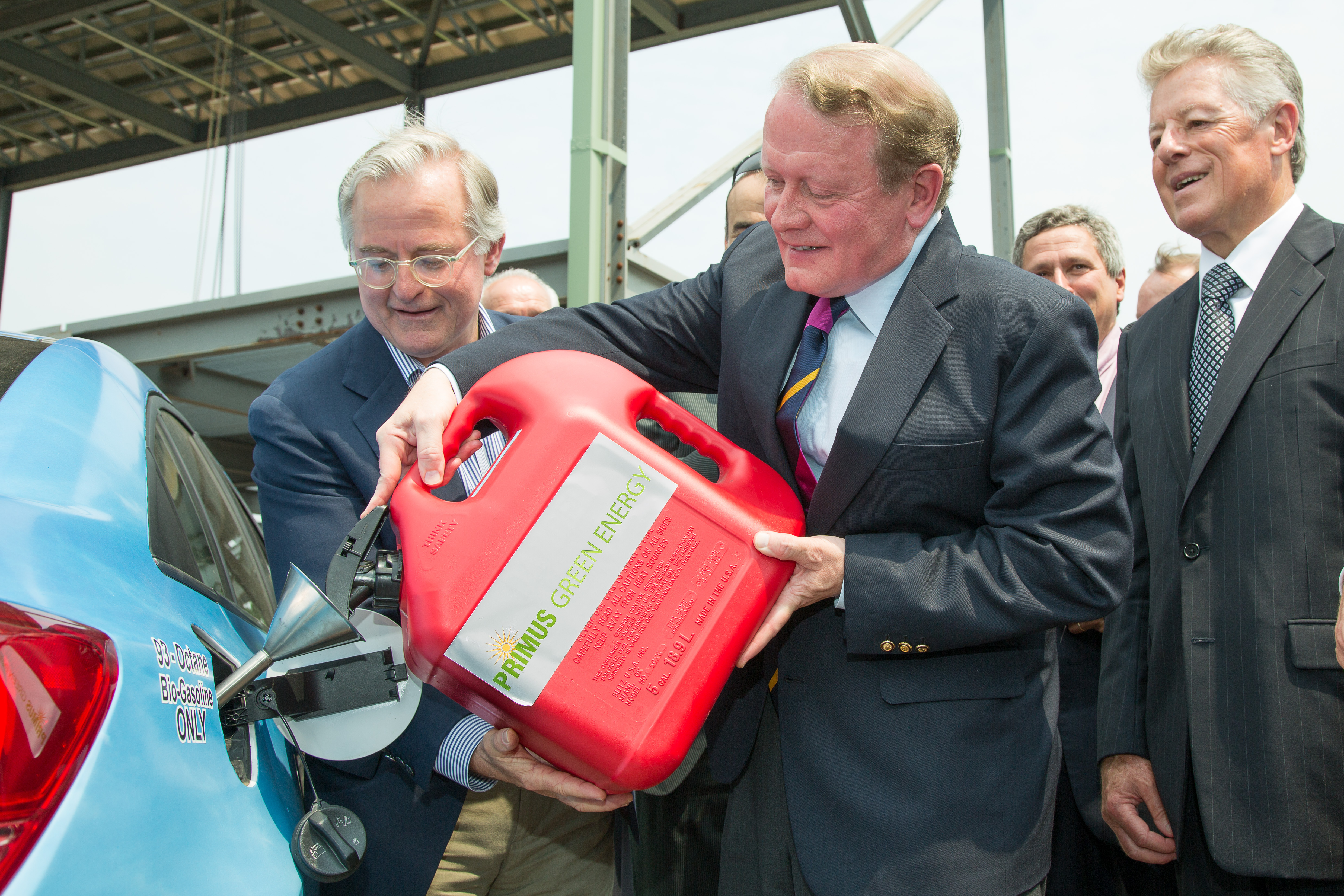Biofuel start-up opts for natural gas fuel conversion


The allure of cheap nature gas has altered the course of a New Jersey biofuel start-up's path to commercialization. Shale gas will serve as Primus Green Energy's (PGE) bridge fuel until it shifts to biomass feedstocks.
PGE today held a dedication ceremony for a demo plant at its Hillsborough, NJ headquarters. Local luminaries and a swarm of politicians, including former governor Jim Florio, Representative Leonard Lance, and an Obama administration agricultural official, were in attendance.
The plant will create up to 5 barrels of fuels per day, which will be used for customer certification testing and approvals. It is also a proof of concept for technology that PGE says can scale to upwards of 100 million gallons per year at a significantly higher yield (35 percent) than the industry average.
The company is hoping to raise US$150 million to build a facility next year that would produce 20 million gallons of fuel annually. In comparison, the Pearl GTL (gas to liquids) facility in Qatar has cost over $19 billion to build.
Prior to PGE's shift to natural gas, wood pellets were its favored feedstock due to their high BTU content, consistency, and long-term availability. Miscanthus grass is also being considered. PGE's process is capable of synthesizing a feedstock into high octane gasoline using an off the shelf catalyst. Byproducts could include jet fuel and plastics.
When I spoke with PGE in February, it was raising $30 million to build its demo plant by the end of this year. I also learned that the scope of its commercial plant has been downsized slightly.
Its original intention was to seek a $500M investment to scale to 75 million gallons annual capacity with a focus on gasoline production. Its break-even point was $60; it now anticipates $65 crude equivalency. Airlines are likely to become its anchor customer, said CEO Robert Johnsen.
Johnsen hopes to locate facilities nearby major airports with access to natural gas, and believes that PGE can negotiate long-term supply contacts as well as convincing airlines to accept "take or pay" terms. That means pay PGE or pay a penalty.
Major airlines are already booking commercial flights on planes fueled by algae, plant oils, discarded cooking oil, trash, and even recycled industrial waste. Johnson described this arrangement as a "win, win" scenario, because airlines face a major business risk with volatile crude oil prices.
PGE's sole investor has been Israel Corporation, which has spent $40 million to build PGE's business, and is likely seeking an exit. PGE's strategy shifted to "incremental commercialization," and it is planning an IPO. Johnsen, who spent his formative years in Wall Street, was made CEO in March.
Israel Corporation's Dr. Yom-Tov Samia was in attendance, and expressed his confidence in Primus' ability to "cross the deepest valley of death." It's clear that over the past several months, Samia, a former Israeli Defense Force Major General, has called his troops to attention.
What remains to be seen is whether its incremental commercialization strategy will deliver PGE and Israel Corp. a favorable outcome.
Related on SmartPlanet:
- Start-up transforms carbon into gasoline
- Investor jostles Congress on renewable subsidies
- Turning pollution into energy
- Shell spends 19 billion to convert natural gas into clean diesel
- U.S. invests $510 million into biofuels
- Ford backs algae biofuel research
- Your next flight could be plant powered
- Virgin introduces a lower carbon jet fuel
- Your next flight might be plant powered
- New from the Jersey Shore: high octane biofuel
This post was originally published on Smartplanet.com